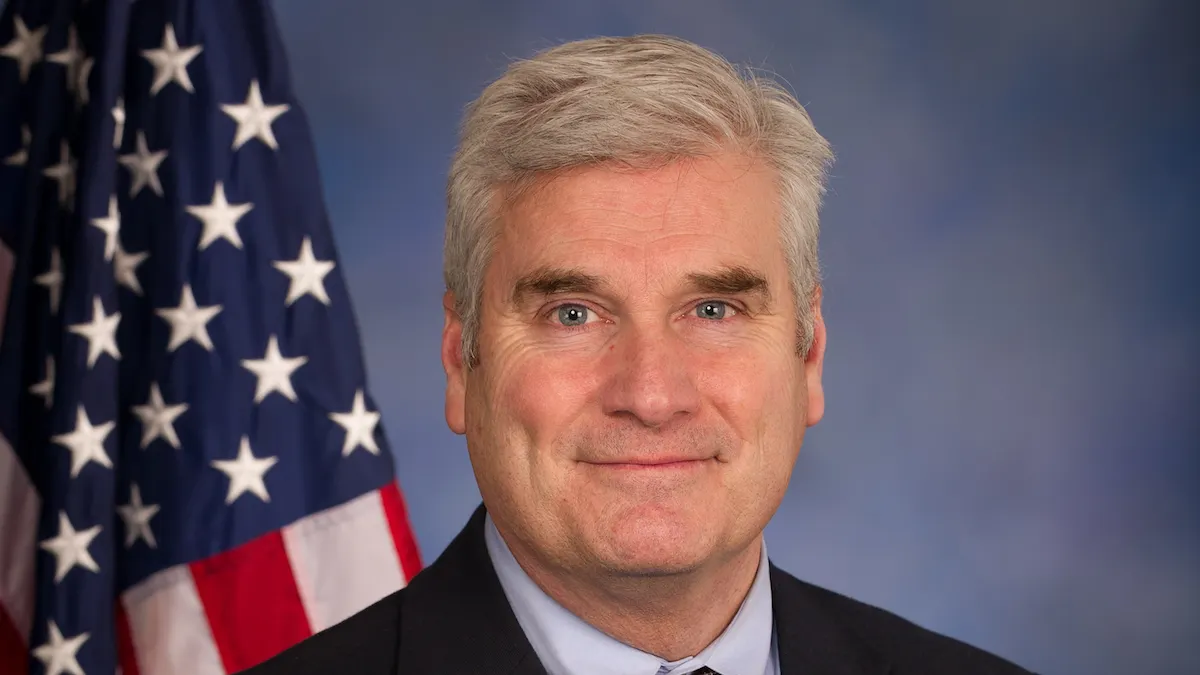
Home Majority Whip Tom Emmer (R-MN) laid into Wyoming’s accelerating plans to difficulty its personal stablecoin Thursday, issuing a uncommon rebuke of a fellow Republican crypto initiative.
“I respect the vote of the Wyoming folks, nevertheless, I personally am vehemently towards any authorities issuing a tokenized model of its foreign money,” Emmer instructed Decrypt. “On the federal stage, this could be thought-about a central financial institution digital foreign money.”
Central financial institution digital currencies, or CBDCs—digital variations of a state’s fiat foreign money—have in recent times change into a well-liked boogeyman of Republican politicians. GOP governors and President Donald Trump alike have labored to ban the event of CBDCs in america, given their perceived menace to consumer privateness. Many Republicans have taken to dubbing CBDCs as “Huge Brother’s digital greenback.”
That’s as a result of central financial institution digital currencies, in contrast to cryptocurrencies like Bitcoin or Ethereum, are managed by a central issuer that would have the power to freeze funds or in any other case management how these currencies are spent. And whereas missing the censorship-resistance of Bitcoin, CBDCs include all of the transparency: Each transaction made with a “digital greenback,” as an example, can be accessible to the central issuer for scrutiny.
And but, on Wednesday, Wyoming’s Republican governor, Mark Gordon, introduced that his state is planning to difficulty a cryptocurrency as quickly as July: its long-planned stablecoin, WYST.
These concerned with the venture insist that the stablecoin, even whether it is issued by the Wyoming authorities, is nothing like a CBDC. Stablecoins are cryptocurrencies typically pegged to the value of the U.S. greenback, which permit customers to commerce out and in of crypto with out exiting digital property utterly. Additionally they function greenback equivalents in markets the place {dollars} are restricted.
Anthony Apollo, govt director of Wyoming’s Secure Token Fee, maintained Thursday that despite the fact that he too is against the notion of a state-backed CBDC, WYST is a completely totally different kind of product.
“Wyoming cares considerably about privateness,” Apollo instructed Decrypt. “We're going to have guidelines in place about what we will and might't acquire, how we will deal with that information, and the way we will act on that information.”
The director added that the precise nature of such insurance policies remains to be being ironed out internally. Wyoming’s authorities can be weighing counting on a 3rd get together like a centralized crypto trade to deal with information assortment for WYST.
One of many chief criticisms levied towards authorities issued tokens, although, is that no matter guidelines one administration makes about them, might at all times be modified by future ones.
Apollo went on to argue that in contrast to CBDCs, that are digitally issued by a central financial institution the identical manner money is created, Wyoming’s stablecoin can be totally backed by reserves like U.S. Treasuries, and so doesn’t pose inflationary danger.
“Wyoming will not be a central financial institution,” Apollo stated. “We’re not issuing any money.”
However why is a solidly pink state making an attempt to difficulty any type of government-backed digital asset?
Backstage on the DC Blockchain Summit on Wednesday, Gov. Mark Gordon and Apollo made the case {that a} public stablecoin might provide key advantages personal issuers—reminiscent of Circle, the issuer of USDC—would balk at, together with decrease charges and adaptability on touchier transactions like firearms purchases. Curiosity accrued from the token’s Treasury reserves would additionally fund the state’s faculty system.
However the token’s rollout has definitely introduced with it questions concerning the function of presidency in issuing such a product. Apollo stated it's pretty frequent for him to must subject questions on whether or not WYST is a CBDC or not at public hearings and even in conversations with state legislators.
The subject is at the moment entrance of thoughts in Wyoming. Simply weeks in the past, Gordon signed a invoice into legislation prohibiting the event of a CBDC within the state. The invoice’s sponsor stated a key goal of the laws was “to ship a transparent message to Congress: that Wyoming rejects the thought of basically managed digital foreign money.”


